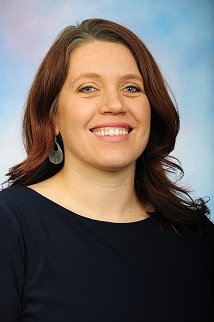
Cancer impacts every area of a patient's life. It can also create financial problems.
To better understand the economic consequences of cancer survivorship, the Barbara Ann Karmanos Cancer Institute recently launched a five-year study of white and African-American survivors in metropolitan Detroit. A $729,000 American Cancer Society grant supports the project.
Theresa Hastert, Ph.D., assistant professor of Oncology for the Wayne State University School of Medicine and Karmanos, is leading the study, which includes adults diagnosed with breast, colorectal, lung or prostate cancer since 2013.
"As treatments improve, we're seeing an increase in the number of cancer survivors," Dr. Hastert said. "But patients without adequate financial resources are at increased risk of having lasting debt. Survivors who experience financial hardship are five times more likely to limit treatment in some way — they consciously forgo treatment, skip doctor appointments or fail to fill their prescriptions."
The diverse survivor base studied will also help Dr. Hastert and her research team see whether economic burdens differ by race and socio-economic status.
"We want to determine the biggest predictors of financial hardship," Dr. Hastert said. "That will help us identify the most serious burdens experienced by diverse cancer survivors and the best way to address those problems."
While most cancer patients have health insurance, many are underinsured, said Kathryn Smolinski, director of the Legal Advocacy for People with Cancer Clinic and assistant clinical professor at Wayne State University Law School.
"They may have high co-pays or high out-of-pocket costs for things that aren't covered," she said. "Most patients rely on their employment as their primary income source. If a patient's job becomes jeopardized, paying for treatment becomes a big issue."
Oncology social workers are knowledgeable about community and government resources that can help patients manage costs, Smolinski said.
Smolinski added that patients should review their insurance coverage and ask their oncology social worker to help identify sources of financial assistance. These actions should be part of the patient's treatment plan.
"Social workers can also help patients arrange payment plans with their landlord, mortgage lender or utility companies. It's never a good idea to let bills pile up," she said.
To learn more about Karmanos' social work services, call 1-800-KARMANOS (1-800-527-6266).